A Half-Million Dollar Ad on deBanked
January 4, 2021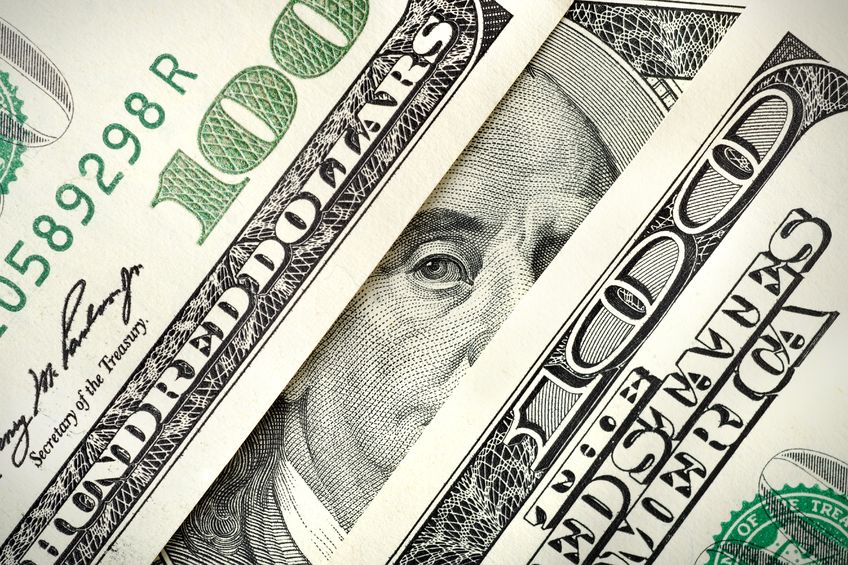 In early 2015, deBanked signed up a customer that was interested in paying with Bitcoin. So we priced it out and we agreed that about one month of advertising on our website combined with an ad in a single magazine issue would cost about 14 bitcoins.
In early 2015, deBanked signed up a customer that was interested in paying with Bitcoin. So we priced it out and we agreed that about one month of advertising on our website combined with an ad in a single magazine issue would cost about 14 bitcoins.
I submitted an invoice via Coinbase and they paid. Pretty soon thereafter, we sold the bitcoins for cash. I thought nothing of it because I’ve never seen Bitcoin as an investment.
We continued to do other advertising deals in Bitcoin in which the contracts were priced in Bitcoin instead of dollars but that was the largest single Bitcoin transaction we ever did. I’ve also done things like pay for hotel rooms for industry conferences in Bitcoin, because you know…that’s how I roll.
As you probably heard over the New Year’s weekend, the price of bitcoin shot up to $34,000. It got me thinking about how I failed to become a Bitcoin millionaire years earlier, but now with this incredible new high, it reminded me of that one deal in particular
Fourteen bitcoins in 2021 is worth approximately $476,000. Almost a half million dollars. That was for just 1 month of advertising on deBanked.
I guess I should’ve held on to them.
Happy New Year.
Keeping Up With The Winklevii
July 6, 2020 Spending the previous three and a half months indoors, locked away from others, and sat at homebound desks have had differing effects on everyone. Some have had a period of intense productivity, some have fallen into bad habits, and some have spent an inordinate amount of time on social media. The Winklevoss twins, famous for playing a role in the founding of Facebook, are of the latter sort.
Spending the previous three and a half months indoors, locked away from others, and sat at homebound desks have had differing effects on everyone. Some have had a period of intense productivity, some have fallen into bad habits, and some have spent an inordinate amount of time on social media. The Winklevoss twins, famous for playing a role in the founding of Facebook, are of the latter sort.
Cameron and Tyler, aged 38, are two entrepreneurs with a particular focus on cryptocurrencies. Having experimented with social media in its early days with Mark Zuckerberg at Harvard, the pair later sued the Facebook CEO in 2008, the same year they rowed for the USA in the Beijing Olympics. From here the twins went into venture capital; led a seed-funding round for BitInstant, a Bitcoin payment processor; claimed to have accumulated 1% of all Bitcoin by 2013 between them; and launched Gemini, their own cryptocurrency exchange, in 2014. Since then, as Bitcoin’s value has surged and fluctuated, the pair have become figureheads for the cryptocurrency, having been proponents of the decentralized currency from the days when it was worth less than $10, to its highest valuation in 2017 at just below $20,000, to its current price of just over $9,000.
And with quarantine providing all the time in the world to ponder the future of Bitcoin, the twins have been posting daily on Twitter about the crypto, relating it to any and all topics that proved popular. Cancel culture? There’s a tweet for that. George Orwell’s magnum opus, 1984? There’s a tweet for that. Vaccinations and their alleged comparability with cryptocurrency? There’s a tweet for that.
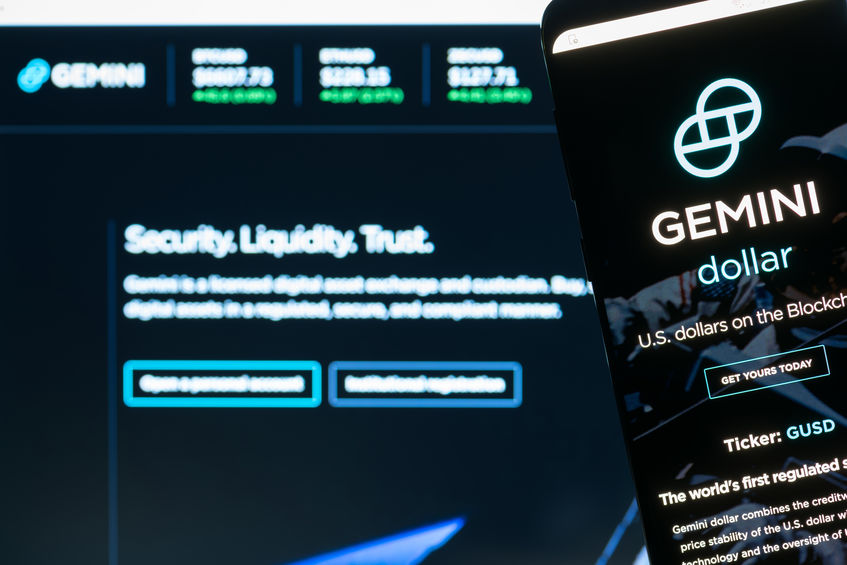 Beyond comparing and relating Bitcoin to everything that comes up in the news cycle, the twins brought up an idea a number of times on social media over quarantine: that the pandemic has set the stage for a decentralized world.
Beyond comparing and relating Bitcoin to everything that comes up in the news cycle, the twins brought up an idea a number of times on social media over quarantine: that the pandemic has set the stage for a decentralized world.
While it is clear that this has happened to a point already, given the global move toward working from home, Cameron believes it will go further, mentioning in a tweet that the pandemic will be “an inflection point for Bitcoin and the Metaverse.” Choosing not to expand on this lofty statement, the specifics of Cameron’s claim can’t be known for sure, but the idea behind the Metaverse, a collectivized virtual space based off the setting of a 1992 sci-fi novel which is capable of replacing the functions and opportunities granted by the real world, is one well suited to Bitcoin, or, at least the idealized vision of what Bitcoin could become.
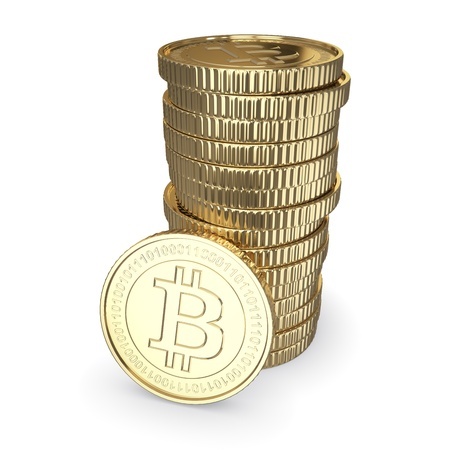 As well as this prophesizing of a virtual utopia, the brothers displayed an intense distrust and paranoia of government, currencies that are regulated by centralized banks, and the role of big tech. With tweets criticizing the Federal Reserve’s decision to inject $1.5 trillion into the economy, YouTube’s ongoing debate over whether the First Amendment applies to a private business, and warnings against the threat of a government willing to grab more power during a pandemic, the billionaires’ tweets appeared at times to reach Elon Musk’s recent anti-government messages via Twitter.
As well as this prophesizing of a virtual utopia, the brothers displayed an intense distrust and paranoia of government, currencies that are regulated by centralized banks, and the role of big tech. With tweets criticizing the Federal Reserve’s decision to inject $1.5 trillion into the economy, YouTube’s ongoing debate over whether the First Amendment applies to a private business, and warnings against the threat of a government willing to grab more power during a pandemic, the billionaires’ tweets appeared at times to reach Elon Musk’s recent anti-government messages via Twitter.
With the twins having noted their disappointment in the US government earlier in the year at a conference in January, that time regarding the government’s slow adoption of cryptocurrencies, it is not so much of a surprise to see these further critiques, especially with them largely taking aim at the government’s employment of federally printed money, or “toilet paper,” as they call it.
All this being said, the twins appeared to be just like everyone else during quarantine: left with not much to do with a stable internet connection and a charged phone. And so conspiracies and cryptocurrencies aside, the brothers also made time for the irreverent and the relatable, posting about the possibility of a Groundhog Day-style scenario during quarantine as well as the importance of “sunsets, the stars, and true friends” in a tweet that wouldn’t be amiss in a Disney film.
Ultimately though, the sooth-saying and future-gazing done by the Winklevii in quarantine will take years, if not decades, to come about, if it ever does. One thing is certain though, the twins won’t stop talking about it until then.
Interest in State-Backed Digital Currencies Rising
October 4, 2019 This week, two House Representatives presented Federal Reserve Chairman Jerome Powell with a letter calling for the Fed to seriously consider the creation of a digital currency.
This week, two House Representatives presented Federal Reserve Chairman Jerome Powell with a letter calling for the Fed to seriously consider the creation of a digital currency.
Beginning their letter with, “As you are aware, the nature of money is changing,” French Hill (R-AR) and Bill Foster (D-IL) run through a brief history of money as we know it before relaying their central worry, “that the primacy of the U.S. Dollar [sic] could be in long-term jeopardy from wide adoption of digital fiat currencies.”
Such concern is bolstered by the knowledge that over 40 other countries are investigating the use of digital currencies, with Sweden, Uruguay, and China’s programs each being name dropped by Hill and Foster; as well as by comments by the President of the European Central Bank, Christine Lagarde, who noted that in the absence of digital currencies backed by central banks, private firms will be left to dominate the space, effectively bypassing banks, and ceding control of monetary policy as well as power to combat illegal financial activities such as money laundering.
Before signing off, the authors warn of the troubles that Libra, Facebook’s unlaunched cryptocurrency could release into the world of finance if the tech giant is allowed to run free of regulation; and they finish by asking Powell to consider a number of questions relating to the establishment of a US dollar digital currency.
Not found among these questions is the conundrum of whether a sovereign digital currency would be referred to as legal tender despite it being intangible.
Hill and Foster aren’t the first to raise this issue, in fact former Chairwoman of the Federal Deposit Insurance Corporation Sheila Bair wrote in Yahoo Finance last year urging the Fed to shift its focus. Naming the potential digital currency ‘FedCoin,’ Bair explains the benefits of such a creation, saying that during recessions the Fed could reduce the interest rate on FedCoin in order to encourage spending, while during boom years interest rates could be increased to avoid overheating of the economy. As well as this, Bair proposes that in the case of a downward economic spiral, the Fed could issue time-limited coins that will expire if not spent on consumption.
Although it isn’t all sunshine and economic prosperity in Bair’s assessment, as she also notes that FedCoin has the potential to be a massive disruption to credit availability, with its implementation meaning that the over $10 million which is currently deposited by customers in American banks could vanish overnight if every American moved their savings to FedCoin. Regardless, Bair concludes her article with the warning that “If it does not stay ahead of this technology, not only could banking be disrupted – but the Fed itself could also be at risk.”
Bair’s comments are matched by former Bank of England Governor, Mark Carney, who, at the Economic Policy Symposium in August, discussed how a digital currency backed by a coalition of central banks, or as he termed it, a synthetic hegemonic currency (SHC), could allow for economies to move away from the US dollar as the global hedge currency and, thus, remove themselves from the currency’s domineering influence.
Interestingly, Hill and Foster’s letter comes the same week as news of a sovereign digital currency in Venezuela. President Nicolás Maduro confirmed that his government has plans to develop payment methods based off Bitcoin and that the country would begin stockpiling cryptocurrencies for its international reserves. These developments will accompany Petro, the cryptocurrency issued by the Venezuelan government that is backed by the country’s oil and mineral reserves.
As noted by Decrypt, despite his history of supporting Bitcoin, Juan Guaidó, Venezuela’s other President whose claim to the position has been recognized by Donald Trump, has described his rival’s move toward a digital currency as a show of “desperation.” In true crypto form, Guaidó also lambasted Petro in 2017 for not being a real cryptocurrency as its value is determined by oil.
With the initial promise of cryptocurrency as the herald of a more egalitarian currency free of borders and regulators having been largely undelivered in the developed world, as such currencies are instead used for speculating and turning profits, Maduro is framing his decision to double-down on digital currencies as a return to the original vision.
“Donald Trump and his sanctions are blocking Venezuela from carrying out transactions in any of the world’s banks,” said the president this week. “There’s other formulas to pay, and it’s what we’re using, because our payment system works perfectly in China and Russia … Venezuela is working with the world of cryptocurrencies as a free national and international payments system … The finance minister and Venezuela’s central bank have new instruments which we will activate very soon so that everyone can do banking transactions, as well as national and international payments through the central bank’s accounts.”
Whether or not Maduro’s plan will actually fulfill the original hopes for Bitcoin and cryptocurrencies is unsure, what is certain however is that more and more world leaders and policy makers are beginning to consider digital currencies as an issue to be reckoned with, rather than something to hodl at arm’s length.
Coinbase Begins Paying Interest Rewards On Crypto Holdings
October 2, 2019
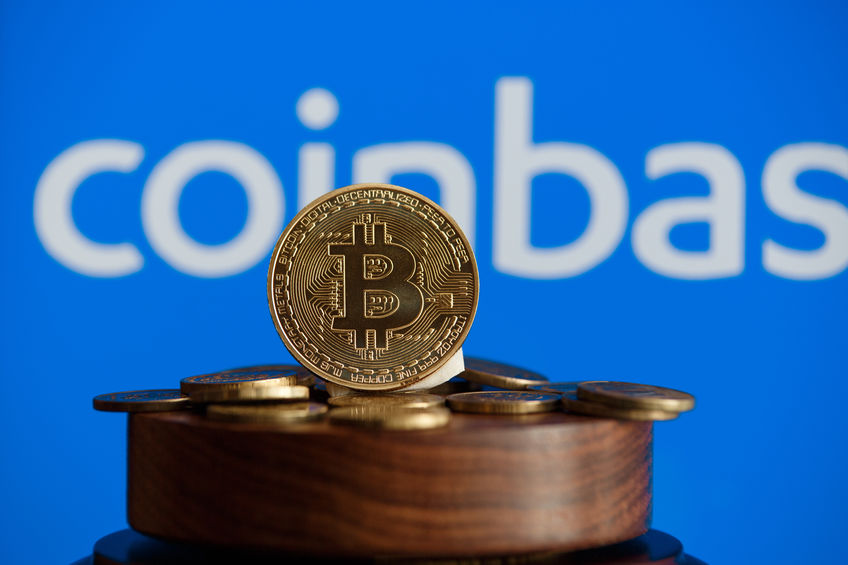 Bitcoin’s price might not be all that right now, but Coinbase, a US-based digital currency wallet, wants to pay its customers a reward for holding on to its stablecoin. Unlike Tether, a popular stablecoin that was purportedly fully backed by US dollars but then revealed it wasn’t, Coinbase’s stablecoin is fully backed by dollars on deposit in a bank.
Bitcoin’s price might not be all that right now, but Coinbase, a US-based digital currency wallet, wants to pay its customers a reward for holding on to its stablecoin. Unlike Tether, a popular stablecoin that was purportedly fully backed by US dollars but then revealed it wasn’t, Coinbase’s stablecoin is fully backed by dollars on deposit in a bank.
The advantage of a stablecoin, in theory, is the stability and safety of the US dollar combined with the fluidity of cryptocurrency. Coinbase’s stablecoin is called USDC and as of Wednesday, the company will begin paying holders of the coin an annualized reward of 1.25% APY. That’s a little bit less than a high yield savings account. It’s interest but it’s technically not. Unlike a bank, Coinbase won’t be using your funds to facilitate loans to generate income so that it can pay out interest to depositors. Instead, the company claims, “You simply earn while storing your crypto safely on Coinbase.”
Coinbase disclaims the offer by reminding users that their funds are not FDIC insured and that the digital wallet is not a deposit account or savings account.
$176 million of USDC exchanged hands in the last 24 hours as of this post being written.
The crypto faithful, users whose optimism in cryptocurrency has been unwavering, have quietly been looking for an alternative stablecoin to Tether. Tether has been locked in a battle with the New York Attorney General and recently revealed in court documents that its stablecoin was not as well backed as the company had claimed.
Signature Bank Partners with trueDigital
December 4, 2018 Today, Signature Bank unveiled a proprietary digital payments platform for its commercial clients, according to a statement released by the bank. The platform, called Signet, is designed to allow Signature Bank’s commercial clients to make real-time payments in U.S. dollars, every hour of the year.
Today, Signature Bank unveiled a proprietary digital payments platform for its commercial clients, according to a statement released by the bank. The platform, called Signet, is designed to allow Signature Bank’s commercial clients to make real-time payments in U.S. dollars, every hour of the year.
“The ability to transmit funds between approved, fully vetted commercial clients of the bank at all times is very valuable, especially in light of the increasing speed and frequency at which they conduct their business,” said Joseph J. DePaolo, President and Chief Executive Officer at Signature Bank. “Signature Bank has made a commitment to invest in its technology infrastructure, and the Signet Platform is indicative of this investment,”
This commitment by a bank to embrace technology is consistent with other banks of late. Chase and PNC have partnered with OnDeck’s ODX to streamline their online lending processes and other banks have partnered with fintechs recently as well.
“The partnership between trueDigital and Signature Bank will quickly prove to be extremely beneficial and revolutionary for clients globally as they will now be afforded the opportunity to make instantaneous USD payments to one another in real-time at no cost per transaction,” said Sunil Hirani, Founder of trueDigital.
The new Signet platform uses blockchain technology and can be used to make payments across a wide variety of industries, initially focusing on power, shipping, real estate, auto and digital assets where costs, delays, operational risks and counter-party risks are significant, according to a trueDigital statement.
The platform is not designed for a very small company as transactions made on the Signet platform require a minimum account balance of $250,000. Also, the companies exchanging money must both have an account at Signature Bank.
The New York State Department of Financial Services has approved the Signet platform and deposits held on the platform are eligible for FDIC insurance, up to the legal insurable amounts defined by the FDIC.
Signature Bank is a New York-based full-service commercial bank with 30 private client offices throughout the New York metropolitan area. This year, the bank opened a full-service private client banking office in San Francisco. Signature Bank’s specialty finance subsidiary, Signature Financial, LLC, provides equipment finance and leasing. trueDigital is a New York-based fintech company that provides solutions to financial markets by utilizing blockchain-based technologies.
Square Funded $339M to SMBs in Q1
May 2, 2018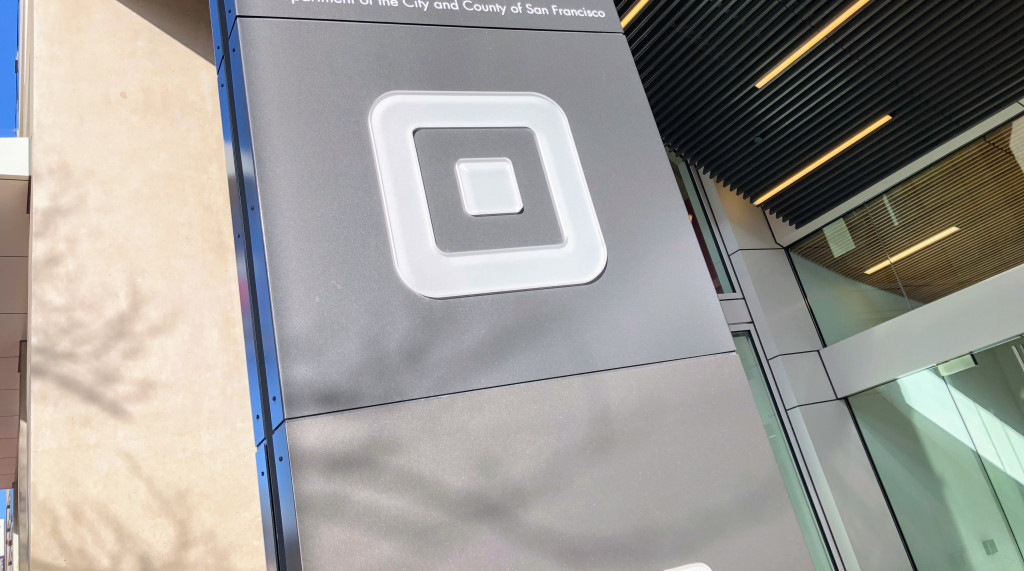
Square’s small business funding arm, Square Capital, made over 50,000 business loans for a total of $339 million in Q1, according to the company’s latest earnings report. That figure is a 35% increase year-over-year and puts them on pace to break last year’s $1.177B total. OnDeck, by comparison, who is arguably their top rival, made $2.11B in business loans last year.
“[..] they just don’t have another way to get access to that sort of capital. And when they get it, they invest in their business,” Square CFO Sarah Friar, said of their merchants during the earnings call. “They’re buying inventory, they’re hiring new employees, they may be taking any lease hold and opening that second location. And when they do that, their business grows and hence our business grows. So, we still think we have a unique product that no one else can really follow us into.”
Square also earned $34 million in revenue from bitcoin, thanks to the Cash App they launched in January that allows users to buy and sell bitcoin. Bitcoin was mentioned an eye-opening 37 times in their quarterly shareholder letter, while their loan program is only referenced 7 times.
Overall, the company brought in $669 million in revenue and recorded a $24 million loss. They also entered into an agreement to buy Weebly, a company that helps people build professional websites and online stores.
“Weebly will expand Square’s customer base globally and add a new recurring revenue stream. Weebly has millions of customers and more than 625,000 paid subscribers,” the company wrote.
Twitter Bans Crypto Ads As Its CEO Praises Bitcoin
March 28, 2018 Following in the footsteps of Facebook and Google, Twitter banned cryptocurrency ads on its platform as of Tuesday. Facebook initiated this policy on January 30 and Google did the same on March 14.
Following in the footsteps of Facebook and Google, Twitter banned cryptocurrency ads on its platform as of Tuesday. Facebook initiated this policy on January 30 and Google did the same on March 14.
“Under this new policy, the advertisement of Initial Coin Offerings (ICOs) and token sales will be prohibited globally,” a Twitter spokesperson told CNBC.
As with Facebook and Google, the rationale behind the ban is to protect users from fraud related to cryptocurrencies.
“We are committed to ensuring the safety of the Twitter community. As such, we have added [this] new policy for Twitter Ads relating to cryptocurrency,” the spokesperson said.
Ironically though, Twitter CEO Jack Dorsey has praised Bitcoin and said as recently as last Wednesday, to The Times UK:
“The world ultimately will have a single currency. The Internet will have a single currency. I personally believe that it will be Bitcoin, probably over ten years, but it could go faster.”
Google and Facebook also have complex relationships with cryptocurrencies.
According to Cointelegraph, even though Google banned cryptocurrency ads, it owns a handful of companies that rely heavily on the use of cryptocurrencies, like Storj, which runs on the company’s native SJCX cryptocurrency, or Veem, which uses Bitcoin for its payments.
Meanwhile, in a post from January 4 of this year, Facebook founder Mark Zuckerberg wrote of cryptocurrencies as a promising counter balance to an increasing centralization of power among technology behemoths:
“There are important counter-trends to [centralization] — like encryption and cryptocurrency — that take power from centralized systems and put it back into people’s hands. But they come with the risk of being harder to control. I’m interested to go deeper and study the positive and negative aspects of these technologies, and how best to use them in our services.”
Facebook Bans Crypto Ads. Is it The Right Move?
January 31, 2018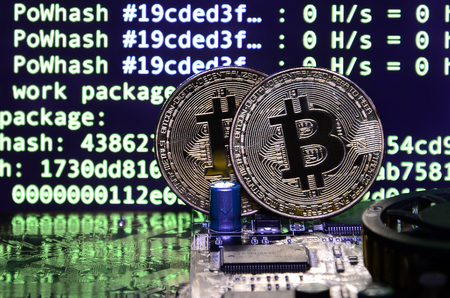 Facebook announced yesterday that it had banned all ads promoting Bitcoin or anything related to cryptocurrencies.
Facebook announced yesterday that it had banned all ads promoting Bitcoin or anything related to cryptocurrencies.
The new item on the Prohibited Content list for Facebook ads reads: “Ads must not promote financial products and services that are frequently associated with misleading or deceptive promotional practices, such as binary options, initial coin offerings, or cryptocurrency.”
In light of the fact that Bitcoin rose in value by about 1600% in 2017, cryptocurrency has received enormous mainstream interest in recent months.
At a memorial last week for the former owner of The Strand bookstore in Manhattan, actor Fran Lebowitz finished her remarks by saying “And can someone tell me what Bitcoin is?” Lucky for her, the well-known economist, Paul Krugman, happened to be speaking next and answered the question.
Right as momentum is building for cryptocurrencies, Facebook’s action warns the public that digital currencies are still shady.
Aside from the inherent mystery of cryptocurrency – that users are not identifiable – recent revelations have revealed that a cryptocurrency called Tether may be artificially sustaining Bitcoin. If this is true, it could have a devastating effect on the value of the most traded cryptocurrency.
In an explanation of Facebook’s new policy, the social media giant’s product management director, Rob Leathern, wrote: “This policy is part of an ongoing effort to improve the integrity and security of our ads, and to make it harder for scammers to profit from a presence on Facebook.”
Leathern wrote that the new policy is “intentionally broad” so that Facebook can better identify deceptive practices.
Is Facebook doing the right thing?
James Altucher, an investor and finance writer who has invested in cryptocurrencies since 2013 and sells “Crypto Trader,” an educational package for $2,000, thinks so.
“Ninety-nine percent of cryptocurrencies are total scams,” Altucher has written on his blog.
“I think this is a very good move for Facebook,” he told Recode.net.





























